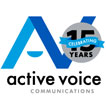 A nervous source can tank an interview — ultimately leading to dull content. That’s because nervous interviewees tend to give short answers and shy away from colorful responses. They might even appear defensive. If you want lively quotes and interesting anecdotes from your subject matter experts (SMEs), you want them to be relaxed and comfortable talking to you. When you have a nervous SME, here are a few interviewing tips to help him or her relax and engage with you.
A nervous source can tank an interview — ultimately leading to dull content. That’s because nervous interviewees tend to give short answers and shy away from colorful responses. They might even appear defensive. If you want lively quotes and interesting anecdotes from your subject matter experts (SMEs), you want them to be relaxed and comfortable talking to you. When you have a nervous SME, here are a few interviewing tips to help him or her relax and engage with you.
Start with soft questions. How would you feel if first thing in the morning, your partner or child started throwing questions at you? What’s for breakfast? What are you going to wear? What should I wear? What are we doing tonight? It would be far less overwhelming to deal with all of these questions once you’ve A) had your coffee and B) answered some softer questions, like How did you sleep? and How are you? So, give your interviewee a break. Ask them about the weather where they are, how their weekend was, etc. It relaxes the interviewee and helps you build a rapport. It shows her you realize she’s a person — not just a source.
Let the questions build. If you’re talking about a controversial or complex topic, don’t lead with the toughest questions. Start by asking for some background about the topic. This is good for you anyway and lets your SME get into a groove with the content. Plus, it helps your subject matter expert feel confident that you have the knowledge and understanding to ask the tougher questions.
Show you’ve done your homework. Never mind that a source is generously giving you his time and you want to show you appreciate it … But showing you’ve done your homework helps give your SME confidence that you are going to do a good job with the piece of content you’re working on. Sometimes you might ask a question you know the answer to just because you want a quote. But to the expert, it might appear that you’re an idiot who didn’t do any research. A source might balk at something like: “What are the top risk factors for heart disease?” Instead, you could say, “Research shows there are a number of risk factors for heart disease — some we can control and others we can’t. Let’s talk about those controllable lifestyle factors … ” Then, lead into a specific question. This way, you’ve established with your interviewee that you understand the risk factors and have done some research upfront.
Be specific. Have you ever been in a job interview where a potential employer says, “Tell me about yourself”? Ugh. Where do you even begin, right? Broad questions can lead to rambling answers that might lead you somewhere great. But for nervous interviewees, broad questions are more likely to make them clam up. More specific questions help SMEs stay relaxed and focused. So instead of: “How does ABC software benefit customers?” you might try: “ABC software benefits customers in a lot of ways. How might it save customers time?” This way, you’ve shown you know the benefits and you’re going to focus on one at a time. A lot of interviewees will probably go beyond this one benefit, but starting with a specific question can help your SME stay on target — and comfortable.
Speak to their personal experience. Some SMEs can be nervous because they don’t want to speak for all surgeons, all IT pros, all researchers, etc. To help them get past that hurdle and be more comfortable sharing their expertise, try phrasing the question in a way that speaks to their personal experience. Examples: “When you work with patients, where do you start with …?” or “When a client comes to you with ABC problem, how do you typically suggest going about solving?” Using the word “you” helps the SME understand that they can speak about their own experience without fear of generalizing.
Assure them of a review. If you work in journalism, this doesn’t work, obviously. But for content marketers, in general, you can assure your SME that he or she will have a chance to review the content. That’s a simple way to get your subject matter expert to relax. A lot of SMEs are nervous about how their words will appear, and in their attempt to be precise, they become less conversational — and less interesting. And even though you know you play for the same team and you aren’t out to do an expose, your SMEs don’t always realize that. So if they know they’ll get to see the piece (or at least their quotes) in advance of publication/posting, it can put them at ease and allow them to speak more freely.
